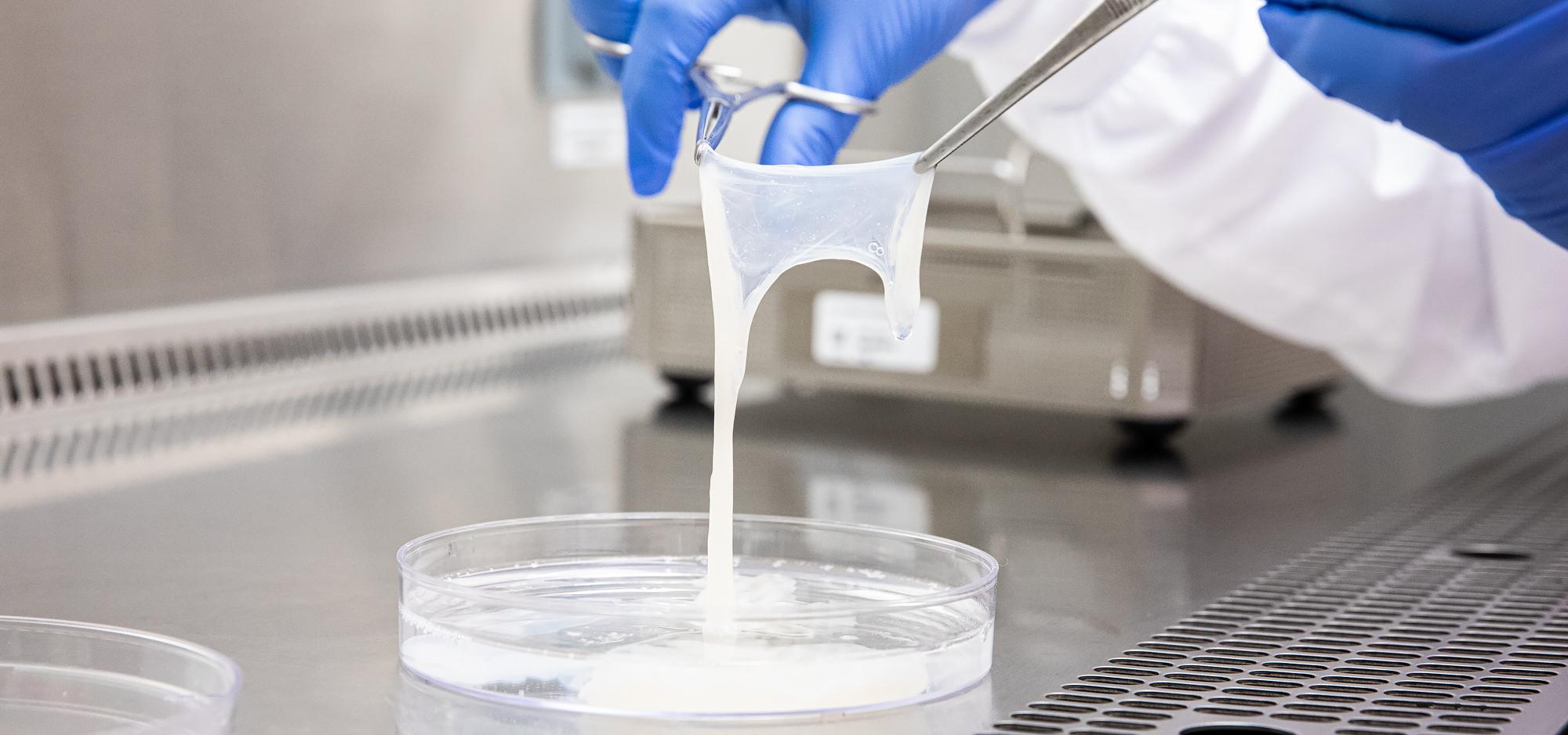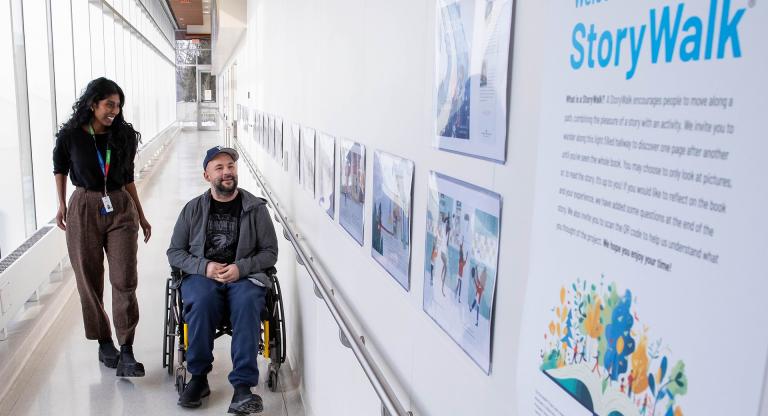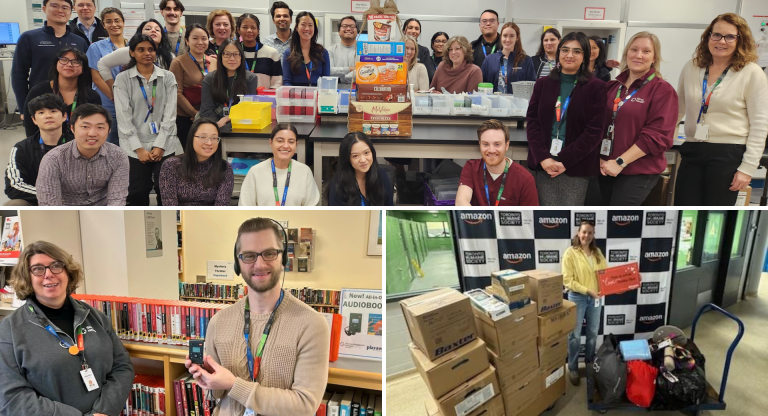How donated placenta is being used to treat complex wounds

After suffering from a leg infection caused by damage to the blood vessels, Sidney Akler was urgently admitted to the Intensive Care Unit (ICU) at Mount Sinai Hospital.
He spent nearly three months in the ICU before being transferred to Hennick Bridgepoint Hospital for rehabilitation.
After suffering from a leg infection caused by damage to the blood vessels, Sidney Akler was urgently admitted to the Intensive Care Unit (ICU) at Mount Sinai Hospital. He spent nearly three months in the ICU before being transferred to Hennick Bridgepoint Hospital for rehabilitation.
Initially, Sidney’s prognosis was bleak: his leg may need to be amputated, he was told. But thanks to innovations in wound care therapy, Sidney was offered a promising treatment involving the use of placental tissue dressings.
It has been nearly 100 years since placental tissue was first used clinically to treat hard-to-heal wounds. Often discarded after birth, placental tissue has been scientifically proven to have therapeutic properties.
Mount Sinai Hospital’s tissue bank, Mount Sinai Allograft Technologies (MSAT) is currently the only program in Ontario to produce amniotic membrane products that promote wound closure.
“Placental tissue dressings can be used to treat a variety of clinical indications, including burns, leg ulcers, and wounds resulting from surgery,” says Dr. Balram Sukhu, director of Mount Sinai Allograft Technologies. “These tissues contain many properties that have been shown to effectively reduce inflammation, infection and scar tissue formation, as well as speeding up the wound healing process.”
Located at Mount Sinai Hospital, MSAT runs the Mothers Healing Others Placenta Donation program. Through this program, expectant parents scheduled for a Caesarian section at Mount Sinai can consent to donating their placenta after birth, provided they have no disqualifying medical conditions.
The amnion is the innermost layer of the placenta surrounding the embryo during pregnancy. Placental tissues collected from screened donors post-birth are transformed into amniotic membrane grafts through a rapid process. This involves cleansing and sterilizing the tissue, sizing it correctly, and performing detailed quality checks.
Numerous factors can impede wound healing, but amnion provides an opportunity for a wound to heal when traditional treatments have not been successful or are insufficient.
“No single wound care case is the same,” says Anna Kha, one of the clinical nurse specialists for wound care at Mount Sinai Hospital, who is currently supporting Sidney’s treatment. “A patients’ ability to heal is dependent on many factors, including amnion – which gives the wound a “boost” and the building blocks to optimize healing, nutrition and other traditional wound care methods.”
In between Sidney’s treatments, he also underwent forty consecutive days of hyperbaric oxygen therapy at a nearby Toronto hospital, to optimize his health and increase his chances of complete wound closure. And while this has been a significant time commitment for Sidney, the steady progress that has been observed has provided hope to the team.
“After weekly treatments, the wound has gotten lot smaller than it was two years ago,” says Sidney “There is no definite time on when it will be healed completely, but it is getting a lot better.”
Laura Teague, a nurse practitioner specializing in wound care was pivotal in preparing Sidney’s wound and initiating the amnion treatment. Thanks to the collaborative efforts and dedication from the late Dr. Teague, the Tissue Bank, and the wound care team at Hennick Bridgepoint Hospital, Sidney’s treatment prevented the need for leg amputation.
Sidney’s positive outcome highlights the remarkable results that the use of placental tissue can achieve and underscores the significance of teamwork, and Sinai Health’s commitment to delivering seamless care throughout the patient’s healing journey.
“If you were to follow the trajectory of this treatment, it’s really incredible to see how it can help patients,” says Anna. “For some patients with complex wounds, the fact that these treatments offer a viable solution is amazing.”
An avid golfer, Sidney is most looking forward to getting back onto the golf course in the near future.
Since 1972, MSAT has stood at the forefront of innovation for advanced tissue allograft products innovation. MSAT holds various accreditations, including Health Canada Registration, and the American Association of Tissue Banks. Expectant parents scheduled for a Cesarean birth at Mount Sinai Hospital can learn more about eligibility to participate in the placenta donation program on the Mothers Healing Others website.












